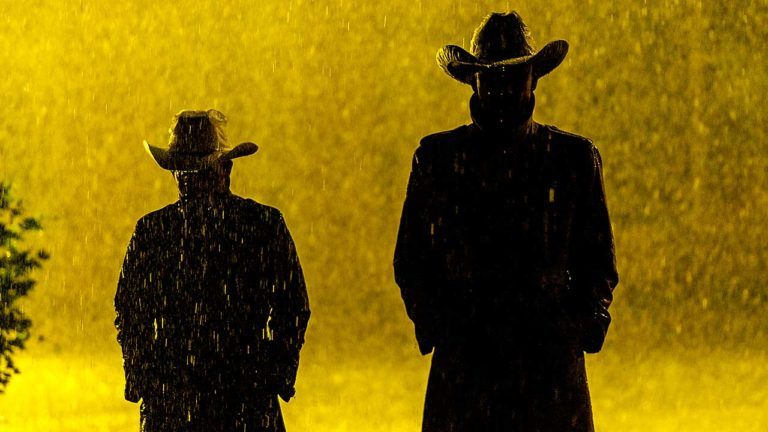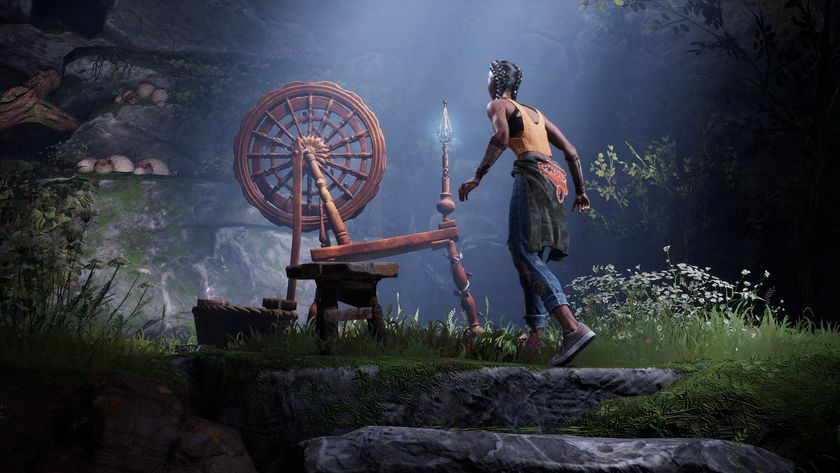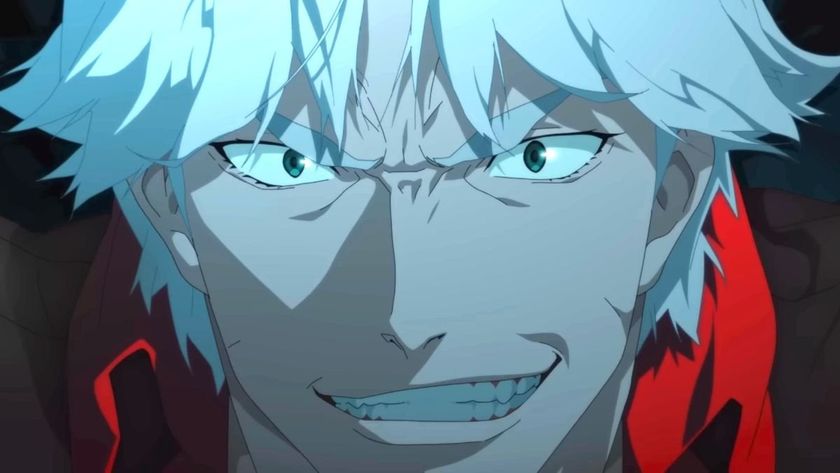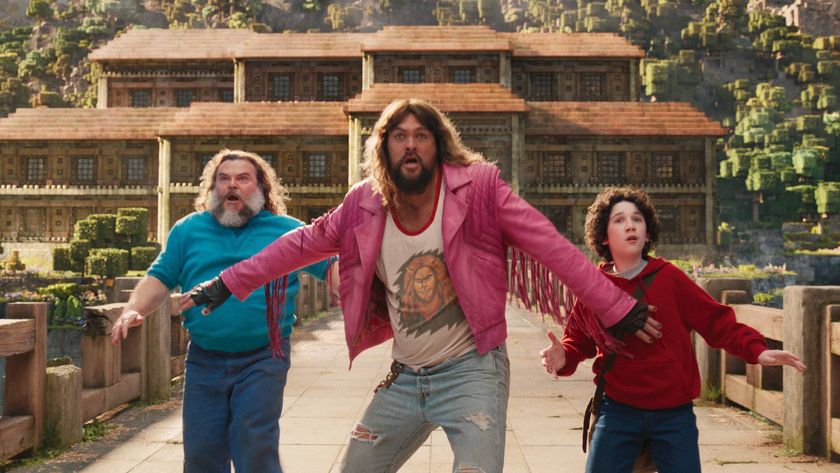Why you can trust 12DOVE
“I told you what I was and now you see,” says Cassidy to Jesse Custer in the nasty, dim yellow light of the back room in Tulip’s house. He’s just finished drinking the blood of one of Annville’s more hapless idiots. Struggling to recover after setting himself dramatically on fire, Cassidy’s a mess of scars, burned hair and dried blood from the animals Tulip’s been feeding him to try and nurse him back to health. His gruesome visage is a reflection of the twisted weirdo, drunk on supernatural powers, that Jesse himself has become and in a rare moment of likability, Custer admits it. “You saw me too, Cassidy,” says Jesse. “The worst part of me. And I am so sorry.” The moment is everything Preacher is when it slows down and focuses; grisly and frightening and sweet and sad and kind of funny in spite of it all. But as it’s done repeatedly over its entire first season, Preacher loses that focus almost immediately in its penultimate episode. Even when it does something as dramatic as moving the action to Hell, AMC’s show can’t maintain its focus long enough to make an impact beyond its occasionally striking moments and performances.
Cassidy and Jesse’s reunion is just one of a few legitimately rousing scenes in Finish the Song, the season’s second to last episode, which spends its entire 47-minute run time trying to set the stage for a big conclusion, forgetting what it’s doing like a dog distracted by its reflection, and then licking itself as it ambles back to its task. Part of what’s been so frustrating about Preacher is that for all of its repeated mistakes--miserable pacing that leaves most episodes like this one a disjointed mess chief among them--it can conjure up uniquely stirring, surreal images. At their absolute best, scenes like Jesse and Cassidy making peace are moving despite the fact that the rest of the story surrounding them is broken.
Hugo Root finally stumbling on the gory aftermath of the angel fight at the Sundowner hotel; our bumbling angels booking a trip to Hell at a travel agency that looks eerily similar to the afterlife bureaucracy of Beetlejuice; even a quiet breakfast under an overpass, where Jesse shares pancakes and morning merlot with a homeless couple after escaping the police. Moments like these play out like expert microfiction, visions of displaced people in a mean world confronting soul-wearying circumstances as though they’re as mundane as a trip to the grocery store. None of those moments last, though. They’re not bolstered by the cumulative effect of truly getting to know characters over the course of the season or by the satisfaction ofn delivering on evolving plot threads. These scenes are, like Jesse Custer and Tulip O’Hare, orphans surrounded by inexplicable incompetence and illogical viciousness.
Not much happens here in the aftermath of last week’s siege at the church. Jesse escapes from the law to deliver on his promise of making God appear at the church, but his grand plan is just telling Tulip and Cassidy he’s sorry for being a jerk and stealing the angels’ absurdly convenient telephone to heaven. Occasionally we find characters engaged in contextless silliness, like when we briefly check in Odin Quincannon and his boys who are wrestling in his office. Why? Just to be wacky and weird, I guess. If I didn’t know any better I’d say no one actually works at the Quincannon meat plant. The rest of the episode is devoted to abject cruelty that doesn’t jive with the established personalities of the characters committing it.
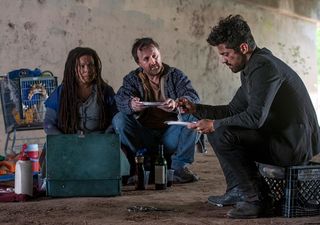
Last week it was Tulip feeding a rescue dog to Cassidy to help him heal, a moment so detestable that it made it impossible for me to care about her leaving Jesse behind to finally seek her revenge on their old partner this week. (Tulip says in this episode it’s because Cassidy needs “living blood” but the two of them met with Cass healing after drinking packs of plasma at a local hospital. Just another example of sloppy storytelling.) This week it’s Emily, Jesse’s second in command at the church, who Tulip asks to look after the healing Cassidy. At first she’s horrified that vampires are real. Then she just decides to trick her wimpy boyfriend the mayor into Cassidy’s clutches. The mayor’s been a jerk all season but an incidental one; he’s always been an ineffectual nothing and Emily up to this point had no problem pushing him around. But murdering him in cold blood? It makes absolutely no sense in context of the rest of the show.
But the cruelty doesn’t end there. Finish the Song devotes a significant chunk of its running time to that 19th century gunslinger that showed up earlier this season for a couple of truly baffling asides. In this episode’s cold open, he wanders back to the town whose miscreant residents caused him to not make it back to his sick daughter with medicine in time and he kills everyone, from a school full of kids to the thugs in the brothel that gave him a kicking before. Later on, though, the episode stops for an almost complete replay of all his previous scenes. This is played in the story as a stylistic choice, that the gunslinger is repeating the same horrific steps over and over again because he’s trapped in Hell and that’s his punishment. In execution, though, this feels like the necessary result of the whole season’s structural issues. They had to replay huge chunks of his scenes because most audience members wouldn’t know what is even going on if they didn’t. All that wasted time, just so the angels could go to Hell to find him and hire him to “kill a preacher,” as they put it.
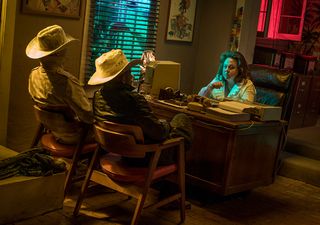
Given how divorced from the original comic book story the show is, I’ve gone out of my way to try and never directly compare the two in these reviews this season. In this case, though, it’s impossible to avoid some comic-related spoilers. The gunslinger is, here and in the book, a tragic figure of monumental supernatural power. Almost as dangerous as Genesis, the entity that gives Jesse the power to command others. He experiences the very same loss of his family as depicted in this episode, but what damns him to Hell in the original is his choice to kill an innocent in order to get to the bad men that caused him trouble. Here, he just kills a school full of kids for no reason other than to make him look like a monster. It’s not just needlessly mean, it negates the entire purpose of the character in the story. No series of artful and isolated character moments can make up for Preacher’s dumb brutishness that serve no apparent purpose other than to fuel its busted narrative engine.

"I can promise my game will be significantly less than $80": Indie dev stunned by Kirby Air Riders Switch 2 reveal after working on their own Air Ride successor for months

Mario Kart World quietly fixes one of the series' longest-standing annoyances and I suspect I will get hit with 10% fewer red turtle shells because of it
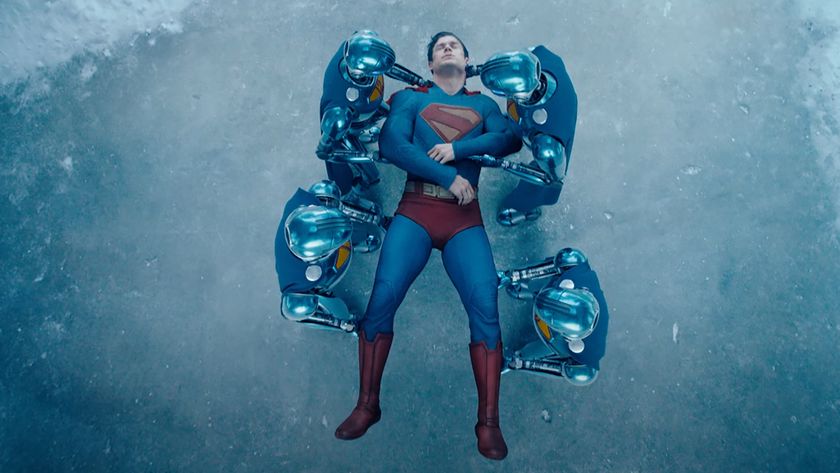
Superman goes full sci-fi in DC's epic CinemaCon footage, showcasing a bloodied Man of Steel rising again
